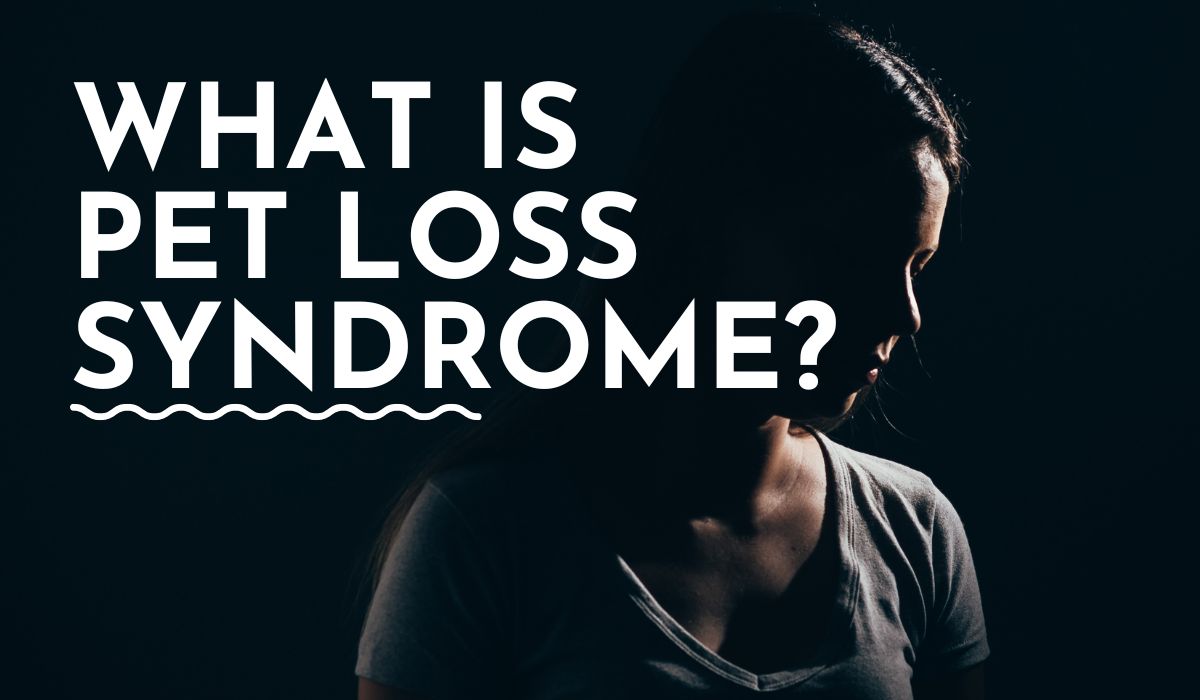When a beloved pet passes away, the emotional turmoil one experiences is highly profound and can mirror the grief felt after the loss of a human family member.
This deeply felt grief is often referred to as pet loss syndrome, a condition in which symptoms range from sadness and loneliness to guilt and anger, affecting both mental and physical health.
Understanding these feelings is critical, as grieving pet owners may not always recognize what they are going through or may feel isolated in their sorrow.
Therefore, in this article, we will talk about pet loss syndrome and how to recognize it in yourself or others.
Talking about this unique condition, many pet owners experience after pet loss can help open up spaces for recognition and support, allowing grieving individuals to navigate their loss in a healthy way.

Understanding Pet Loss Syndrome
When you lose a pet, it’s not just the loss of an animal; it’s the loss of a companion and a family member.
This experience can give rise to a condition known as pet loss syndrome, which encompasses the range of emotional and psychological challenges you may face.
Symptoms of Pet Loss Syndrome
Symptoms of pet loss syndrome can mirror those experienced in human bereavement, including intense sadness, crying, and feelings of loneliness.
Many people also experience guilt, wondering if they could have done more to prevent their pet’s death.
Anxiety and depression are common, as is a sense of emptiness, especially in routines that once included their beloved pet.
Psychological Impact of Pet Loss Syndrome
Psychologically, the loss can affect daily functioning and mental well-being, and symptoms such as fatigue, changes in appetite, and difficulty sleeping can also manifest in someone who is experiencing pet loss syndrome.
Duration of Grief
The duration of grief varies widely among individuals going through pet loss syndrome.
Unlike acute grief, this syndrome can persist for months and even extend beyond a year.
While there is no “normal” timeline for grieving, those affected by Pet Loss Syndrome should consider seeking support and help, as the duration is typically longer.
Coping With Pet Loss Syndrome
Coping with pet loss involves acknowledging your feelings and permitting yourself to grieve.
Here are some strategies to help manage the loss:
Create a Memorial: Establishing a memorial to honor your pet’s life can provide a sense of closure. This could be a dedicated space in your home, a photo album, or a tree planted in your pet’s memory.
Seek Support: Reach out to friends or family who understand your bond with your pet. Consider joining pet loss support groups, either in person or online, where you can share your feelings with others who have experienced similar losses.
Express Emotions: Writing about your pet and your feelings in a journal can be therapeutic. Expressing gratitude for the time you spent together and recounting happy memories can help process the loss.
Establish New Routines: Gradually adjusting your daily routines that used to center around your pet can help fill the void. Engaging in new activities or hobbies can also provide a positive distraction.
Consider a Tribute: Volunteering at an animal shelter or making a donation in your pet’s name can be a meaningful way to honor their memory and help other animals in need.
Professional Help: If grief becomes overwhelming, seeking help from a therapist or counselor specializing in pet loss can provide support and coping mechanisms.
Frequently Asked Questions
In this section, you’ll find answers to frequently asked questions about pet loss syndrome.
These insights aim to provide guidance through the challenging emotions you may be facing.
How can one cope with the grief of a pet’s euthanasia?
Coping with the grief of a pet’s euthanasia involves allowing yourself to mourn and express your feelings. Seeking out support through resources such as the Blue Cross pet bereavement service can offer free, confidential help during this difficult time.
What are the psychological impacts of experiencing the loss of a pet?
The loss of a pet can lead to a range of psychological impacts, including sadness, shock, and, in some cases, symptoms similar to Prolonged Grief Disorder. It’s essential to recognize these feelings as a natural part of the grieving process.
Where can I find support groups for coping with pet loss?
Support groups for coping with pet loss can be incredibly helpful. Organizations like Lap of Love offer services such as counseling as well as online spaces to share experiences with others who can relate to the pain of losing a pet.
Can the pain from losing a pet be as intense as losing a human loved one?
Yes, the pain of losing a pet can be as intense as that of losing a human loved one due to the strong emotional bond formed with pets.
Are there any therapeutic approaches recommended for dealing with pet loss syndrome?
Therapeutic approaches such as grief counseling or structured support programs can be beneficial for individuals dealing with pet loss syndrome. Trained professionals can guide you through the healing process and help you manage your emotions.